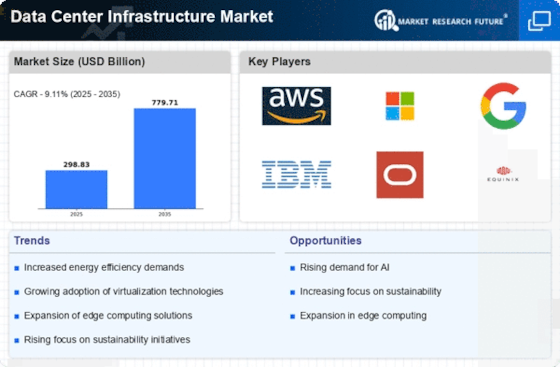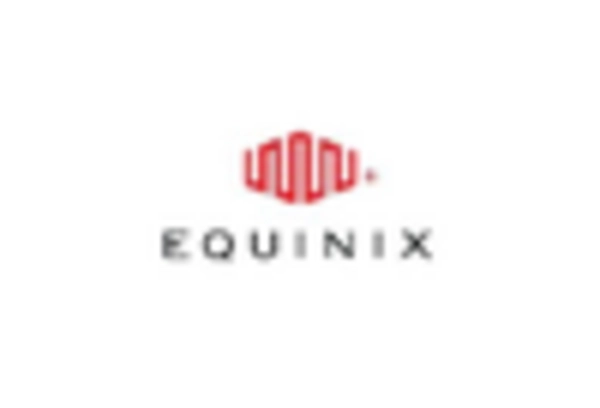Market Share
Data Center Infrastructure Market Share Analysis
In the bustling landscape of the Data Center Infrastructure market, companies employ a variety of strategies to position themselves effectively and gain market share. One of the primary strategies is differentiation, where companies strive to set themselves apart from competitors by offering unique features, innovative technologies, or specialized services tailored to the evolving needs of data center operators and businesses. By providing distinct and advanced solutions, companies can attract customers seeking reliability, scalability, and efficiency in their data center operations, thus gaining a competitive advantage and increasing their market share.
Cost leadership is another crucial strategy within the Data Center Infrastructure market. Companies leveraging this approach focus on delivering cost-effective solutions without compromising on quality or performance. By optimizing their manufacturing processes, negotiating favorable deals with suppliers, and utilizing efficient technologies, companies can offer competitive pricing to appeal to cost-conscious clients. Providing affordable Data Center Infrastructure solutions enables companies to broaden their customer base and expand their market share in a highly competitive environment.
Moreover, targeting specific niches or customer segments is a strategic move for many companies in the Data Center Infrastructure market. By tailoring their solutions to meet the unique requirements of particular industries or business sectors, such as cloud service providers, telecommunications companies, or financial institutions, companies can address specific pain points and deliver tailored experiences to their target audience. This targeted approach allows companies to establish themselves as leaders within specific market segments, build strong relationships with customers, and gain a competitive edge in the market.
Strategic partnerships and alliances play a pivotal role in market share positioning within the Data Center Infrastructure market. Collaborations with technology vendors, system integrators, or cloud service providers enable companies to leverage complementary strengths and resources. These partnerships can facilitate access to new markets, enhance customer reach, and integrate Data Center Infrastructure solutions with complementary technologies or services, driving growth and increasing market share.
Furthermore, mergers and acquisitions (M&A) are prevalent strategies for companies in the Data Center Infrastructure market aiming to consolidate their position and expand market share rapidly. Through strategic acquisitions, companies can gain access to new technologies, talent, or customer bases, thereby enhancing their competitive position and capabilities. M&A activities provide opportunities for companies to scale their operations, enter new markets, or eliminate competitors, contributing to solidifying their position in the Data Center Infrastructure market.
Effective marketing and branding strategies are essential for companies looking to establish a strong market position in the Data Center Infrastructure sector. Building a compelling brand identity and effectively communicating the value proposition of their solutions are critical components of these strategies. Marketing efforts may include targeted advertising campaigns, participation in industry events, and partnerships with key stakeholders to position the company as a trusted provider of Data Center Infrastructure solutions.
Continuous innovation is vital for companies seeking to maintain or improve their market share in the rapidly evolving Data Center Infrastructure market. Investment in research and development allows companies to stay ahead of emerging trends, technologies, and customer preferences. Continuous innovation enables companies to enhance their solutions, introduce new features, and adapt to evolving market requirements, ultimately driving market share growth.
Customer service and support are also crucial for market share positioning within the Data Center Infrastructure market. Providing exceptional customer service, offering timely support, and delivering ongoing training and updates are essential for building customer loyalty and satisfaction. Satisfied customers are more likely to recommend a company's solutions to others, contributing to positive word-of-mouth marketing and aiding in the expansion of market share.


















Leave a Comment